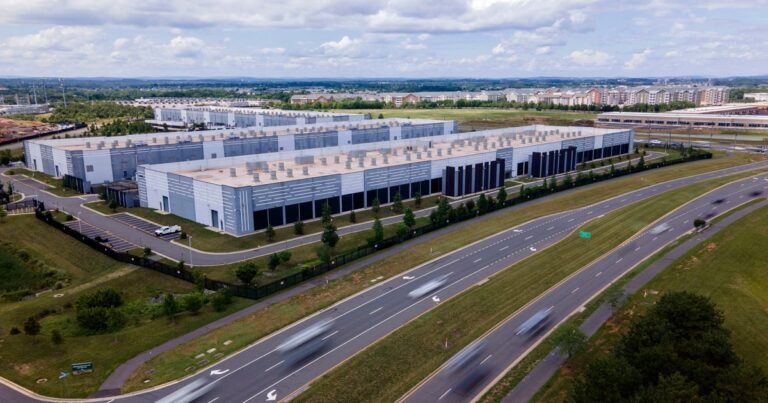The sleeper issue that could play a huge role in Virginia and New Jersey — and the midterms
“They’re just large boxes that create cash value,” he said. “They do create jobs during the construction process, and there are a few maintenance jobs that certainly will provide a generation’s worth of work for a few people, but they’re not job creators, the way other industries are that would take up that footprint.”
There’s one legislative fix lawmakers in both states want now. State legislators said utility companies are building or repairing electrical infrastructure to accommodate data center needs and then passing the costs on to consumers, rather than having them financed by the tech companies, due to existing rules.
New Jersey state Assemblywoman Andrea Katz, a Democrat, introduced a bill last month to create a data center surcharge that would go toward modernizing the state’s electric grid.
“Our grid needs a lot of improvements, and those improvements are very, very expensive,” she said, adding, “I’m not saying remove these data centers. They just need to contribute to the community in the same way that all the other businesses do.”
Few data center-related bills have become law. In Virginia, legislation routinely stalls out or is vetoed by Gov. Glenn Youngkin, a Republican. Little has passed in New Jersey, though Gov. Phil Murphy, a Democrat, in July signed a bill to study data center impacts.
Dan Diorio, vice president of state policy for the Data Center Coalition, a group that advocates on behalf of the industry, highlighted the jobs, tax revenue and economic development connected to data center growth, adding the industry “is committed to paying its full cost of service for the energy it uses, including transmission costs.”
Some tech companies are now building — or reopening — energy sources to power their data centers, including in Pennsylvania, where a company is powering up the Three Mile Island nuclear facility on behalf of Microsoft. Pennsylvania leaders, alongside President Donald Trump, this year announced $92 billion in AI and energy projects. The Trump administration has given latitude to the AI industry to grow in hopes the U.S. can beat China in AI developments.
“The data center industry recognizes that grid planning and management are ultimately the responsibility of utilities, grid operators and regulators,” Diorio said. “That said, the industry will continue to lean in as a committed and engaged partner to work with policymakers in helping ensure an affordable, reliable grid for all customers.”
A new front in two 2025 elections
Public opinion on data center development is scant, and there’s no indication it has polarized along partisan lines the way longer-term issues have. Local opposition has picked up, however, more recently — including in Virginia.
“Something very interesting is that there is greater coordination at this within the state level,” Miquel Vila, an analyst at Data Center Watch, a project of AI intelligence firm 10a Labs that tracks local data center activity.
Stuart described the opposition he’s starting to see to data centers in his state and district as “the most interesting union you’ve ever seen.”
“Because you’ve got the farmers, you’ve got the environmentalists, you’ve got the people who just love rural Virginia,” he said. “And so there’s a very broad coalition. … They’re not trying to build a fence and a gate, but they want answers.”
Leaders in both parties are trying to walk a fine line between addressing voter concerns about price hikes and not scaring away tech investment.
“I actually haven’t seen data centers in either of their energy plans,” an aide to Murphy said of the race to succeed the term-limited governor, “because then you’ll have to say, ‘I want to dampen the development of data centers.’”
The issue has gotten new attention from the gubernatorial candidates running in those key 2025 elections, though.
As part of former Rep. Abigail Spanberger’s energy platform, the Democratic nominee for governor in Virginia calls for “making sure data centers don’t drive up energy costs for everyone else in Virginia — including by paying their fair share of the cost of new electricity generation and transmission.”
“Virginia is overdue for a statewide strategy on data centers that helps localities across every corner of the Commonwealth make informed decisions about their best path forward,” Spanberger said in a statement.
Spanberger’s GOP opponent, Lt. Gov. Winsome Earle-Sears, did not respond to requests for comment.

